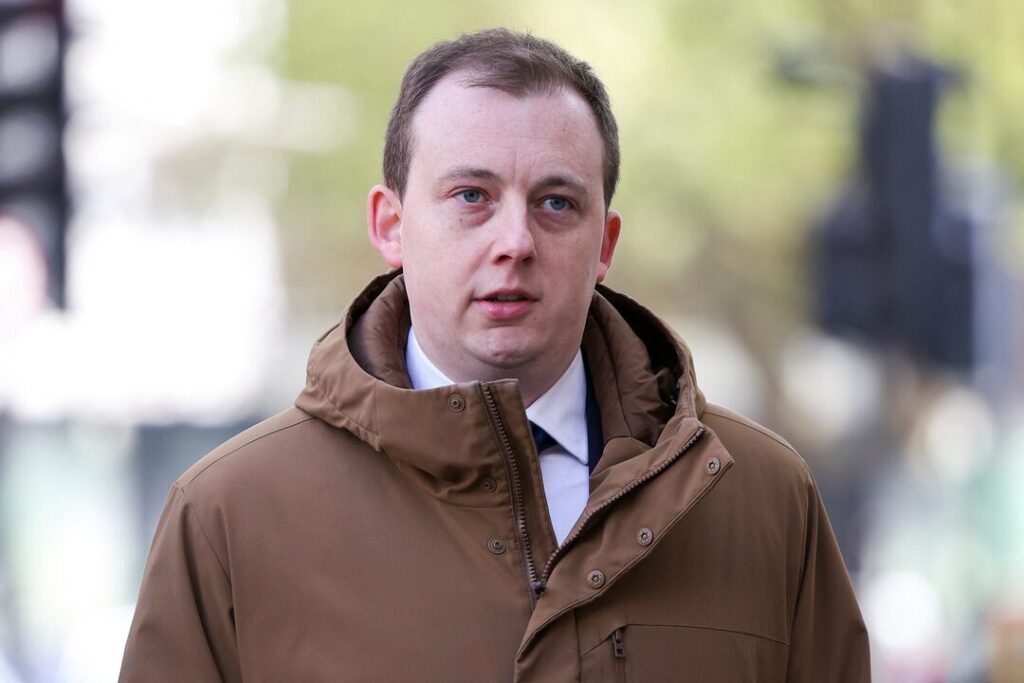British prosecutors said on Tuesday they had done “everything possible” to bring to court the trial of two men accused of spying for China, but the case collapsed after the government declined to classify Beijing as an “enemy state” under the law.
The high-profile espionage case was dropped last month, just weeks before it was due to begin, against Christopher Cash, 30, a former director of the China Research Group think tank, and Christopher Berry, 33.
The two men were accused of passing politically sensitive information to a Chinese intelligence agent, charges they denied.

Christopher Berry, 32, who has been charged with spying for China, arrives at Westminster Magistrates’ Court, in London, Britain, April 26, 2024. REUTERS/Hollie Adams
Both were arrested in March 2023 and formally charged in April 2024 under the Official Secrets Act, which makes it a crime to share documents that could be useful to “an enemy.”
The definition of “enemy” became central to the case after a 2024 court ruling involving Bulgarians accused of spying for Russia, which found that the Act only applied to nations formally designated as enemies of the United Kingdom.
In a letter released Tuesday, Director of Public Prosecutions Stephen Parkinson said prosecutors had sought clarification from the government “over many months” on whether China could be considered an enemy at the time of the alleged offences.
“Notwithstanding the fact that further witness statements were provided, none of these stated that at the time of the offence China represented a threat to national security,” he wrote.
Parkinson said that after assessing the situation in August 2025, prosecutors determined they could not proceed without the necessary government designation. “It is important to provide assurance … that everything possible was done to bring this case to court,” he added.
The case’s collapse has provoked political controversy, with the opposition Conservatives and other parties accusing Prime Minister Keir Starmer’s Labour government of deliberately avoiding confrontation with Beijing.
Speaking to reporters while en route to India, Starmer, himself a former Director of Public Prosecutions, defended the government’s handling of the case, stressing that legal standards depended on the situation at the time of the alleged offences.
“You have to prosecute people on the basis of what was the state of affairs at the time of the offence,” Starmer said. “Nothing changes that fundamental, whoever is in government.”
Source: Reuters
Written By Rodney Mbua